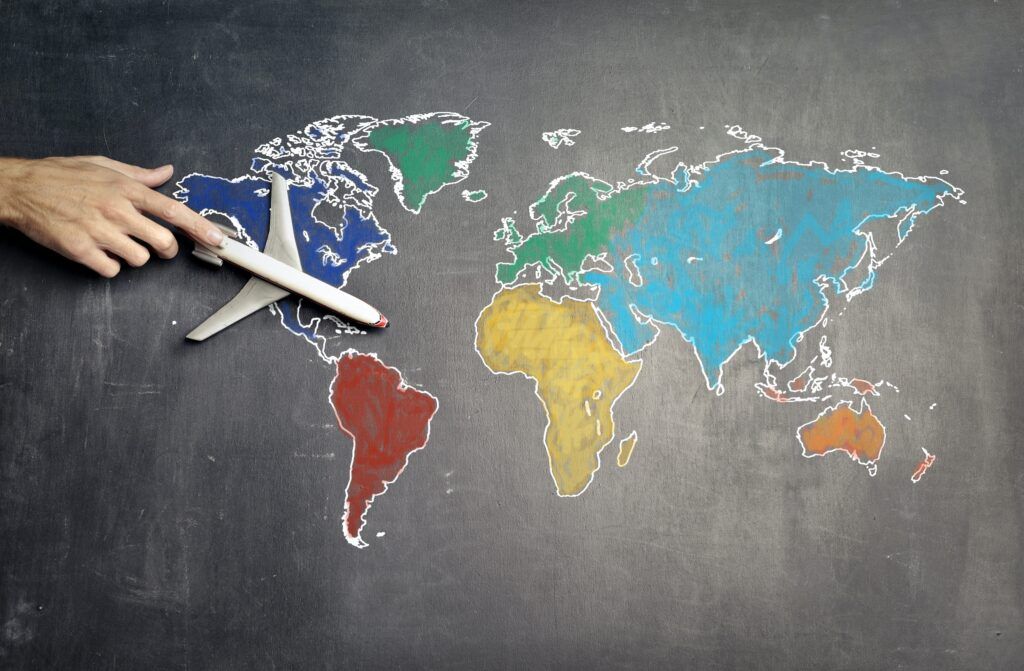How to promote international mindedness in children?
Is internationally minded education effective, and do you want to learn about its philosophy? We tell you all about international-minded education, what it is and how it is applied in the academic environment.
What is international mindedness?
International mindedness is the ability to understand, respect and value the different cultures of the world. Within the educational vision of international mindedness, the aim is to embrace diversity and value different perspectives.
International mindedness is a way of relating to and working with people from all over the world. Through this educational process we gain a very favourable perspective for the future of the student. The contact with different cultures and visions allows us to broaden our personal perspective, revising our cultural parameters.
It is a way of learning from respect for one’s peers, the international mentality in children is to dialogue with others and learn from them.
What is the role of schools in creating an international mindset?
The increasing mobility of the world’s population has made societies increasingly multicultural. In schools, there is a rich interaction of cultures, rich in content, suitable for learning and growing as citizens of the world.
Pedagogical practice in schools that promote international-mindedness requires a sound understanding of multiculturalism, multilingualism and the cultural characteristics of different countries around the world.
Internationally minded schools offer opportunities for learning about a wide variety of local and global situations. It is an education that promotes reflection on one’s own perspectives, cultures and identities. One of the most important approaches is reflection on other cultures as well as one’s own.
In the school environment, some of the general activities that can be carried out are the following.
- Developing and living together on the basis of an ethic of an interconnected global society.
- Create opportunities for students to explore their role and understanding of the world. Providing educational visits to cities or other countries to experience encounters with those cultures.
- Create a safe and stimulating environment for the appreciation of cultural similarities and differences.
- To foster empathy among participants.
- To awaken curiosity about the world among students.
- The school curriculum should promote international mindedness to guide teachers’ and students’ correct use of resources from different cultures.
- The philosophy of international mindedness should be present in assessments, standards and benchmarks of school activities.
- A supportive commitment is needed from parents and guardians, teachers and all those involved.
- The school community recognises the importance of supporting families in transition. This is an excellent opportunity to apply all the basics of international mindedness.
- Encourage linguistic fluency. Learning other languages is a valuable tool for overcoming cultural barriers. When we learn another language we learn about other cultures.
What skills do internationally minded children develop?
- Ability to work with peers from different backgrounds.
- They will be able to collaborate to develop proposals for change in different areas with full respect for diversity.
- They will develop the ability to understand and appreciate different cultures.
- They will be able to recognise European, Asian, African, American and Oceanic cultures. This evolutionary perspective gives them the opportunity to appreciate scientific and social transformations in their proper dimension.
- They will develop empathy for others.
- You will develop the ability to see yourself as a citizen of the world, as a global and responsible subject.
- They will develop and increase their linguistic and communication skills.
- They will be able to discover their vocation. The student will have a very wide range of opportunities with regard to their university studies.
- They will learn leadership as a stance of action and understanding of their relationships. They will know when to be leaders and when to follow others.
- They will be able to develop the solutions needed to solve problems and present solutions in a multicultural context.
- They will become aware of and concerned about global issues.
- They will develop a sense of moral responsibility towards others.
- They will be aware of human behaviour and their responsibility for environmental problems.
International and multicultural mindset: the path to success
The aim of the IB programmes is to develop internationally minded people, so that they are aware of the relationship that unites them with other human beings. Students trained under this philosophy feel responsible for looking after the planet and the people who inhabit it.
At Aravaca International we develop international educational programmes based on the practice and learning of languages. Our educational programmes are based on the assimilation of languages as a vehicular learning process, which provides our students with a broad, open and willing to accept other perspectives.
In reference to their subsequent studies, learning in a multicultural environment predisposes them to face university challenges in other countries with confidence, improving the processes of adaptation.
